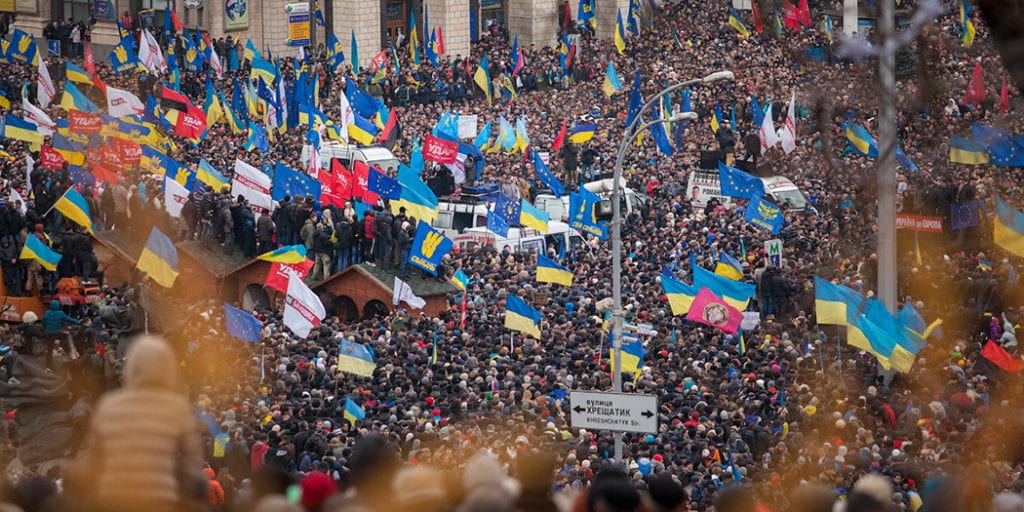
Ukraine is in the midst of its third – and most difficult revolution since independence.
In its 1994 election, Ukraine became the first post-Soviet republic to pull off a peaceful and democratic transfer of power. This was revolutionary at the time and it assured that elections in Ukraine matter and that they are free and fair.
In 2003-2004, when the Donbas oligarchs sought to monopolize power by fixing an election, both civil society and other oligarchic structures successfully pushed back. If nothing else, the Orange Revolution assured that at the very least Ukraine would have oligarchic pluralism.
And in the 2013-2014 Euromaiden revolution, the Revolution of Dignity, Ukrainian civil society took to the streets to demand that Ukraine move from oligarchic pluralism to real pluralism and take its place in Europe.
And that sound you have been hearing, that turbulence we have all been witnessing ever since, is indicative of the difficulty of that transition, of taming the oligarchs and fully establishing the rule of law.
This week, former Ukrainian Prime Minister Oleksiy Honcharuk and Melinda Haring, deputy director of the Atlantic Council’s Eurasia Center and a senior fellow at the Foreign Policy Research Institute, join the podcast to discuss the country’s struggle for democracy.
The Power Vertical Podcast is produced by the University of Texas at Arlington’s Charles T. McDowell Center for Global Studies and the Atlantic Council’s Eurasia Center.
Photo: “Euromaidan, Kyiv.” Gnatoush, Nessa. January 2013. CC BY 2.0.







